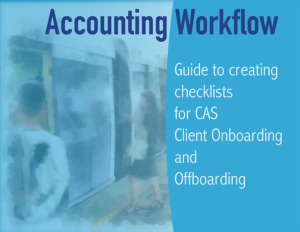Maybe you’ve been hearing a lot about client accounting advisory services (or CAS) lately. If that’s the case, you aren’t alone. The demand for advisory services has skyrocketed in recent years, as more and more firms realize their unique capabilities and how to market them to clients. When it comes to making their most important business and financial decisions, your clients want someone in their corner who has already proven their reliability and demonstrated an intimate knowledge of their business.
But what do advisory services in accounting or bookkeeping really look like?
While most definitions of advisory services are purposely vague to account for the wide variety of offerings this term can envelop, there are a few key categories to keep in mind if you’re trying to implement advisory at your firm.
Financial advisory
Financial advisory is probably the first thing that popped into your mind when you read this blog’s title. It’s no wonder — keeping and interpreting financial information is your bread and butter. It should also be no surprise that plenty of small businesses want help in establishing their financial goals, setting budgets, and creating financial forecasts to prevent unwelcome surprises. You might already be providing tax and bookkeeping services, but chances are your clients have needs that go beyond that. Financial advisory is all about filling in those other gaps.
Operations advisory
Just as you want your firm’s operations to run as smoothly as possible, your clients want each process within their business to be conducted without a hitch. Operations (or process) advisory is where you help your clients establish better business practices through identifying existing problems in their operations and finding remedies to those problems. The task of cleaning up a client’s operations requires detailed knowledge of their business, comprehension of their working environment, and a deep understanding of the businesses’ goals.
Risk assessment (compliance and forensic)
No one wants to be caught on the wrong side of the law OR be a victim of fraud. This is where you come in. We know that accuracy is your middle name, and your commitment to keeping the books straight makes you a potential asset to your clients when it comes to avoiding legal trouble. Compliance and forensic services serve similar purposes, the difference being that the former is a preventative measure for avoiding law-breaking and fraud while the latter is used after there has been an incident with the company. By ensuring that your clients are following the law at all times, you can perform fantastic compliance advisory. Should something go wrong, your job as an advisor would be to figure out who, what, where, and why.
Succession advisory
Switching over control of a company can be a tedious process, but good advice from someone who understands the businesses’ financial history and future goals always helps. Succession looks different for every company. Maybe your client wants to pass their company onto a business partner when they pass away; maybe current employees of the company can be trained for leadership roles. As an advisor, you might find yourself aiding in the development of a recruitment process for potential executives or advising in the purchase of life insurance policies.
When it comes down to it, advisory services aren’t so different from the services your firm already provides. The trick is knowing your worth. After all, your clients come to you for your attention to accuracy and in-depth financial knowledge. Developing good CAS offerings is all about learning how to apply those proficiencies and skills to other important areas of your client’s business needs.











